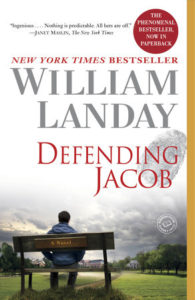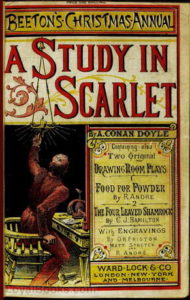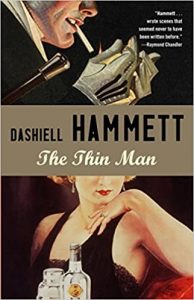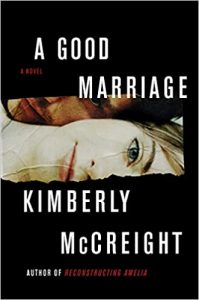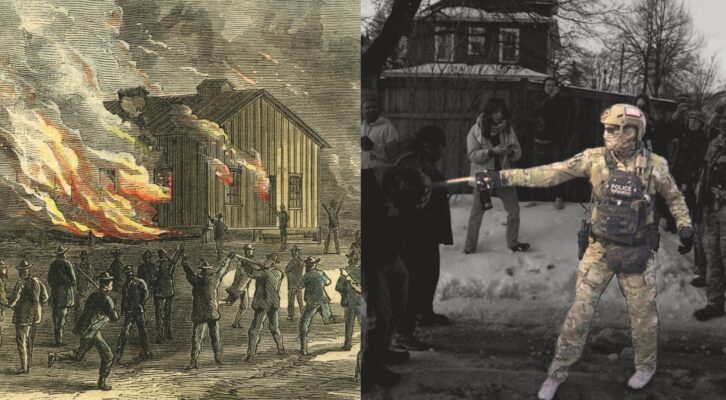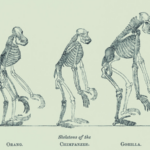I’ve always been fascinated by marriages. How different each one seems. The fact that you can’t ever know the truth of one from the outside. Is that couple you’re having dinner with happy, faithful? Do they have regrets? What lies do they tell each other to make it through? What secrets do they keep from the world?
And each marriage is unique. Some long-married couples bicker, while others can’t keep their hands to themselves. Sometimes one person is very clearly in charge, while other couples seem to share their power almost too carefully—as if perhaps a trip wire lies buried deep beneath the surface.
Could such different couples all be happily married?
Of course, a marriage merely surviving the test of time doesn’t mean it’s “a good marriage.” Plenty of miserable couples soldier on. And asking people whether they are content only goes so far—everyone has their own definition of happiness.
Many wonderful thrillers have been written about what happens when things go wrong in a marriage—when spouses betray each other, lie, even murder. There is a unique power that spouses hold over each other—the secrets they know, the access they have, how closely they sleep at night. Perhaps the real mystery is that more marriages don’t end with a dark twist.
And yet there are some worthwhile lessons to be learned about what makes a good marriage, even in the darkest thrillers. Here are five great books that have something to teach us.
Defending Jacob, William Landay
When Assistant District Attorney Andy Barber’s son Jacob is accused of murder in Defending Jacob, the entire family is understandably devastated and terrified. Andy’s marriage to Laurie is pushed quickly to the brink as their opinions about their son’s innocence diverge and they begin to buckle under the stress. When Andy’s own secrets come to bear, it seems unlikely their marriage can survive. And yet, when the couple faces the ultimate moral dilemma, the answer for Andy and Laurie lies in drawing close turning towards each other to find the answers. Sometimes a good marriage means keeping your spouse’s secrets, whatever the cost.
“A Study in Scarlett,” Arthur Conan Doyle
The partnership between Sherlock Holmes and John Watson that begins in A Study in Scarlett is one of the best marriages ever written. Certainly, it’s one of the most long-lasting. Though it begins as a marriage of convenience, the relationship between Homes and Watson has all the hallmarks of a perfect union—trust, loyalty, affection and deep respect
Holmes and Watson meet on what amounts to a blind date, quickly agreeing that they need each other and can tolerate each other’s faults. (Sound like any marriages you know?) It’s only once the two are living together that Watson is even aware of Holmes’ investigating, and later still that Watson is drawn in. But once that happens, the two—a marriage of opposites—are a formidable pair.

Blind Man’s Bluff, Faye Kellerman
A devoted marriage and faith come first for Detective Peter Decker in this installment of Kellerman’s long-running mystery series. This time Detective Decker and his wife Rina Lazarus’ mutual trust is tested when Rina is inadvertently drawn into a case Peter is working on: Peter must reluctantly accept the danger of allowing Rina to help so that he can get to the bottom of a horrific crime. But throughout the chaos that ensues, it’s the little things that keep Decker and Lazarus tethered—a long drive in the car, a meal heated up, a simple walk on the Sabbath.
By the Pricking of My Thumbs, Agatha Christie
It’s been years since Agatha Christie last sent amateur sleuths Tommy and Tuppence Beresford on the hunt to ferret out the truth—in the case of this title, the secret behind the mysterious disappearance of a woman from their elderly aunt’s nursing home. When Tuppence stumbles too close to the guilty party, she finds she’s the one being hunted. In the end, it’s how well Tommy knows his wife—her habits, the way her mind works—that helps him find her.
The Thin Man, Dashiell Hammett
In Dashiell Hammett’s The Thin Man, former detective Nick Charles and his heiress wife Nora are drawn into helping the young, beautiful Dorothy Wynant find her father. Soon the quick-witted but hard-partying couple is entangled in the dark web of Dorothy’s family.
Nick focuses on solving the mystery, while being boldly pursued by more than one woman during the course of his investigation—sometimes in front of Nora. Somehow, Nora’s faith in Nick isn’t undermined, though. She never has a moment of doubt and doesn’t express even a hint of jealousy. So blind is Nora’s faith that I did find myself thinking on more than one occasion: “Wake up, lady, there’s a fox in your hen house!” (Both Nick and Nora are very intoxicated, a lot of the time.)
But in the end, Nora is right to trust Nick—he notices the beautiful women in a human way, but never really contemplates straying. And it seems, in part, Nora’s faith that inspires Nick to be so trustworthy.
*


